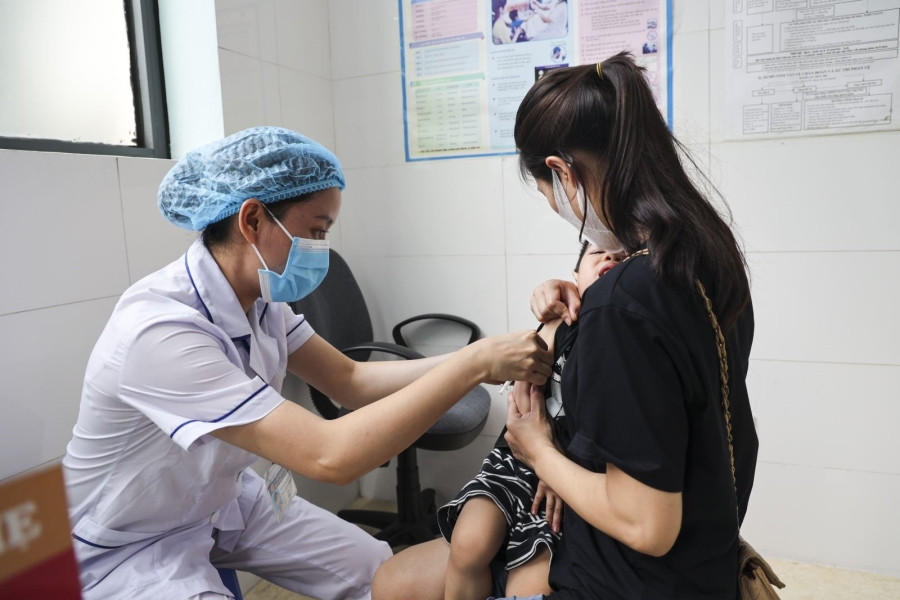Vietnam is about to receive emergency support of over 200,000 doses of 5-in-1 vaccine to vaccinate children; priority will be given to remote areas.

Vaccination for children to prevent dangerous infectious diseases. Photo: Le Phu
Regarding the issue of solving the shortage of 5-in-1 vaccines (vaccines to prevent diseases: diphtheria, whooping cough, tetanus, hepatitis B, some respiratory diseases such as pneumonia, purulent meningitis caused by Hib) in the current Expanded Immunization Program, Minister of Health Dao Hong Lan has just said: "The World Health Organization (WHO) Western Pacific Region, WHO in Vietnam, and the United Nations Children's Fund have agreed to provide Vietnam with emergency support of over 200,000 doses of 5-in-1 vaccine to vaccinate children. Currently, Vietnam also has more than 65,000 doses of 5-in-1 vaccine from domestic funding sources. Units of the Ministry of Health are completing procedures to soon receive aid to have vaccines to vaccinate children".
According to Minister Dao Hong Lan, this number of vaccines will be given priority to children in the age group receiving the 5-in-1 vaccine in remote areas where children have difficulty accessing the 5-in-1 vaccine service first.
In addition to the above vaccines, the Ministry of Health is still purchasing vaccines. The Ministry of Health has assigned relevant units to complete the pricing plans; the Ministry has established two price appraisal teams to send to the Ministry of Finance for early appraisal according to regulations; this is also the basis for ordered vaccines. For vaccines that require price negotiations, the Ministry of Health has assigned units to implement according to regulations.
According to Minister Dao Hong Lan, the leaders of the Ministry of Health and other units have actively worked with partners; many parties are facing difficulties, but at the request of the Ministry of Health, they are also trying to find ways to have vaccine sources to support Vietnam.
Currently, Vietnam has 10 types of vaccines used in the expanded immunization program. Of these, most are domestically produced vaccines, basically meeting the demand until July-August due to the overlap in 2022. The 5-in-1 vaccine is an imported vaccine; it is estimated that over 200,000 children have not been vaccinated with this vaccine.
According to Tin Tuc Newspaper